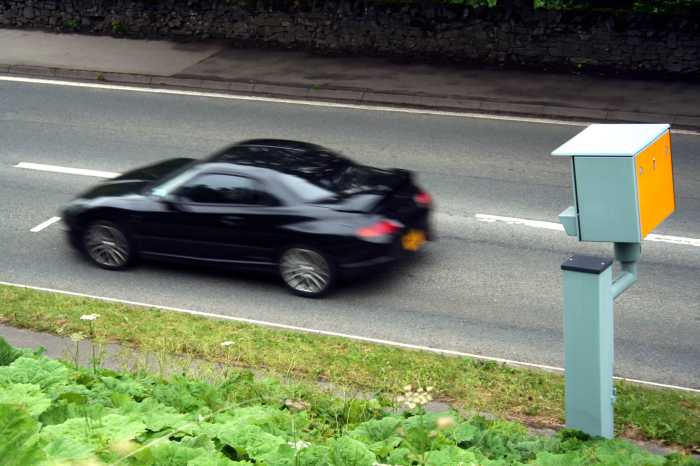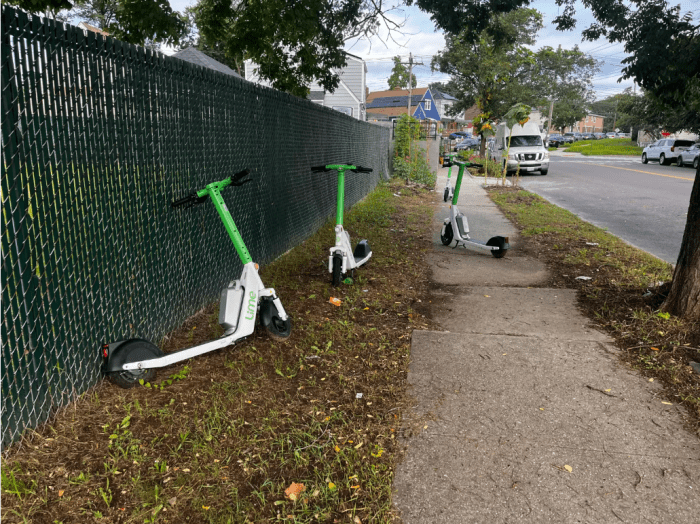
City lawmakers once promoting municipal measures are now pushing Albany to pass legislation that would legalize e-scooters and e-bikes.
Fourteen City Council members penned a letter to the State Senate and Assembly on May 21 that urged lawmakers to pass legislation, which would legalize e-scooters that can travel up to 20 miles per hour and as well as use of some e-bikes on streets.
The effort comes as the state legislative session enters its final 11 days and as Mayor Bill de Blasio’s administration continues cracking down on e-bike riders, many of whom are low-wage delivery cyclists. Data disproves they are a threat.
“We have to do this now more than ever. We continue to see endless amounts of delivery cyclists getting ticketed for the e-bikes they use to do their jobs, to make money and put food on the table for their families,” said City Councilman Rafael Espinal Jr., who represents parts of Brooklyn.
Espinal signed onto the letter even though he ushered a package of legislation into the City Council aimed at accomplishing similar goals. Espinal said his legislation would have used a "loophole" to classify e-bikes and e-scooters as devices, rather than treating them like licensed vehicles under the jurisdiction of the state Department of Motor Vehicles.
“It’s not the cleanest way to do it,” Espinal said of the Council’s legislative package. “The state has the full authority to draft language to classify bikes and scooters, and I think it’s the best way to go.”
The councilman said he would not give up on his bills, but viewed them as a last-case option.
“If the state doesn’t move, I will take action in the city,” Espinal added.
Gov. Andrew Cuomo included language in his proposed executive budget that would have legalized the vehicles, but his proposal contained unusually stiff riding restrictions, such as requiring helmets and reflective clothing after sunset.
After that language was axed from the budget, Assemblywoman Nily Rozic and State Sen. Jessica Ramos introduced legislation in April that removed those regulations and empowered municipalities to craft their own rules.
It is unclear what priority the bills will have as the legislative session comes to a close. The Senate is slated to weigh the bills during a June 7 hearing.
“We understand this is a very important issue and we look forward to discussing it in Conference this session,” said Carolina Rodriguez, a spokeswoman for the Senate’s democratic majority.
Assembly Speaker Carl Heastie’s office did not respond to a request for comment.
As scooter-sharing companies expand to cities across the country, private e-scooters have become somewhat common on New York City Streets, despite remaining illegal. They have prompted concerns about safety and where scooters should operate.
Two people died on e-scooters last year after being hit by drivers.
And Council Speaker Corey Johnson, who has supported legalizing scooters, wiped out on one while vacationing this spring. He described the situation, tweeting, “First five minutes on a @limebike scooter in Mexico City and I face plant on a busy street!”
Scooter companies have spent several thousand dollars lobbying on city and state legislation. Lime has focused its 2019 efforts on Albany, where it has spent $24,000 on lobbying through April.
Phil Jones, Lime’s senior director of east coast government relations and strategic partnerships, said he envisioned the state legislation leading to scooter pilots that closely mirrored the trajectory of the city’s dockless bike share systems, which were initially concentrated in outer-borough areas with less mass transit.
“As we’ve seen in New York City and New York State, there is a real need for alternative transportation options,” Jones said. “[The legislation] is not the end-all-be-all, it’s still left up to local counties how scooters can be used.”





































